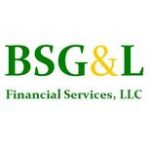 by Michael Tarsala
by Michael Tarsala
Apple’s (AAPL) share loss affects Ben Dickey acutely: it’s his top holding in his Growth Plus Income investment model, making up 9.1% of its holdings.
Yet he says he’s going to “let the mess fall out”, wait for shares to stabilize at lower prices, then seek to purchase even more of the stock.
“I think Apple sales will skyrocket once the iPhone 5 comes out,” Dickey said. “So many people are Apple o-holics. Consumers still want iPhones, they are just waiting for the new one.”
Dickey said that Apple didn’t miss earnings targets due to slack demand as much as it had a product-release timing issue. Apple had a very similar problem in October last year. Consumers didn’t want the current iPhone it was selling; they were waiting for the release of the iPhone 4S.
Apple shares have since rallied more than 60% since the 4S was introduced.
Value-wise, Dickey counts Apple as a “screaming buy,” citing its PE/G ratio of less than 0.6. Among other large-cap techs, Google’s (GOOG) PE/G is 0.9, Microsoft (MSFT) is 1.0 and computer maker Hewlett-Packard (HPQ) is at 1.1.
Dickey said he has no major concerns about the leadership capabilities of Apple CEO Tim Cook. He might not have the the same product vision as former CEO Steve Jobs.
Who does?
Cook might be a better operating officer, though, he says. More importantly Apple is largely the same company under Cook as it was under Jobs.
“If you look at great icons, like Walt Disney (DIS), their companies kept growing for many years after they left, because the culture had not changed. So for me, I still think Apple is a good place to put money.”
Quant manager: Apple is still a top large-cap growth stock
Apple still ranks among the most attractive large-cap stocks, even after its miss, opines quantitative investment manager Hengfu Hsu, of the Covestor Focus Growth investment model.
“It’s still my No. 3 holding, and the top-ranked stock in the model,” Hsu said. “It’s still the top among its peers in the large cap universe.”
That top ranking may slip when Hsu performs a re-ranking of his large-cap stock universe at week’s end. Still, he believes that Apple’s strong track record of earnings growth will keep it in his model, and likely a top holding.
Factors Hsu evaluates in the Focus Growth investment model include earnings and sales growth, asset turnover, operating margins, free cash flow, debt to equity ratios and relative price strength. He compares those ratios among a universe of large-cap stocks.
In addition, he says the model uses algorithms that seek to improve risk-reward ratios and eliminate emotion from the investment process.

